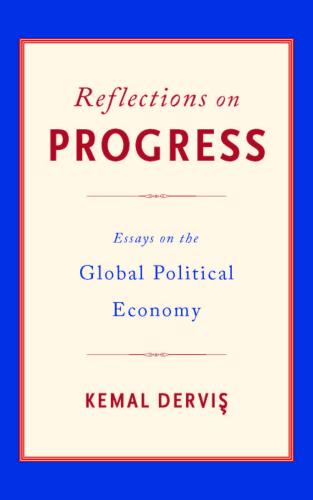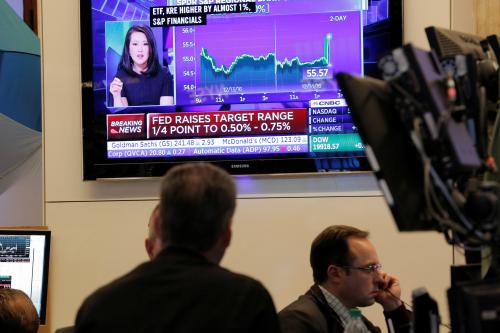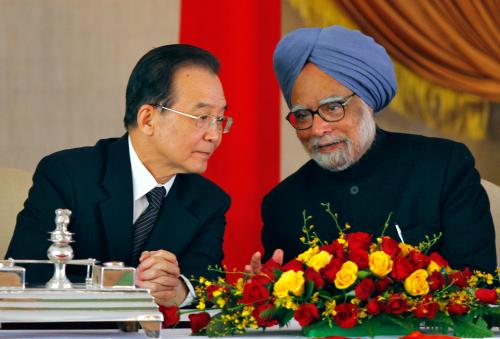This piece was originally published on Project Syndicate on December 28, 2016.
The inauguration of Donald Trump as US president on January 20 could bring more short-term thinking to economic policymaking in the United States and around the world. If it does, we can expect to see increased tension between official measures and long-term goals, especially for monetary policy, development, and trade.
With respect to monetary policy, I am reminded of when I became Turkey’s Minister of Economic Affairs after the February 2001 financial crash. At that time, one of my first priorities was to bring medium-term inflation down to single digits from the 30-70% range that had prevailed during the previous decade. With great difficulty, we passed a law granting the Central Bank of Turkey independent control over the instruments of monetary policy; the government and the central bank would jointly set the inflation target, which I consider to be the proper arrangement.
In 2001, inflation was going to be near 65%, and the International Monetary Fund wanted Turkey to commit to a 20% target for the following year. Instead, we committed to a 35% target, and surpassed that by bringing inflation down to 30% in 2002.
The takeaway from this story is that the central bank gained credibility. After we had set the 35% target, I visited businesses across the country, and saw that they were all budgeting for a 50-55% inflation rate. When I stressed to them that the target was 35%, they signaled their incredulity with polite smiles. So, when that target was exceeded, the central bank became known as a stable and effective institution that would serve Turkey well for many years.
Credible, independent central banks have become a valuable economic policymaking asset around the world over the last three decades. They are a good example of the benefits to long-term thinking. To be sure, central banks are not always right; but they are far better than governments engineering short-term boosts to win elections.
Short- and long-term thinking do not necessarily align in economic development, either. I have often heard business leaders complain that competitive-bidding laws prevent them from just “making a deal” with development agencies. But even though a transparent procurement process that rules out quick deals is slow, there is good reason to insist on it. Despite the “lost” time on individual projects, studies have shown that competitive-bidding laws generally save money and reduce corruption in the long term. If red tape is slowing things down too much, the solution is to simplify the procedures, not to abolish competitive bidding.
Similarly, on trade policy, some protectionist measures can deliver quick benefits to a sector or even a country, and in the case of well-crafted export subsidies, those benefits may last a long time. But, eventually, when other countries retaliate, and trade wars become the order of the day, the benefits are overwhelmed by the costs, and everybody is worse off. The World Trade Organization was established precisely to prevent this scenario, and its system of agreed rules and legal procedures has generally kept a lid on competitive protectionism.
In these and many other areas, such as climate policy, there are clear trade-offs between short- and long-term thinking. Generally speaking, the best policies should take both perspectives into account. But, over time, long-term thinking has rightly become a hallmark of good governance. John Maynard Keynes was correct that “in the long run we are all dead,” but the human life span can be quite a long run, indeed. And we should also think about how our children and grandchildren will benefit – or not – from the policy choices we make today.
Political leaders who have a purely private-sector background tend to take a more short-term approach than leaders with experience in public service, not least because most markets produce incentives for corporations to emphasize quarterly and yearly profits and share prices above all else.
So, the incoming Trump administration, which is heavily staffed with life-long private-sector players, will likely emphasize speed and quick deals over long-term policies and institution building. This approach may create short-term gains, or even spectacular results; and many observers will welcome it as a departure from slow, procedural bureaucracy. And long-term thinking is about a future that is uncertain, and may play out very differently than expected.
But if leaders end up pursuing an extreme form of short-termism – by, say, passing big tax cuts with no accompanying revenue increase, weakening public institutions, or imposing tariffs or engaging in other forms of protectionism, without accounting for retaliation by other countries – the gains will not last long. In both politics and economics, no reform should throw out the baby with the bathwater.
The Brookings Institution is committed to quality, independence, and impact.
We are supported by a diverse array of funders. In line with our values and policies, each Brookings publication represents the sole views of its author(s).








Commentary
Op-edThe coming short-termism
January 3, 2017